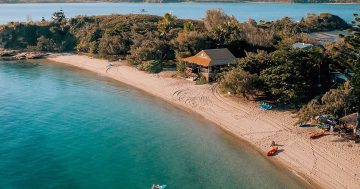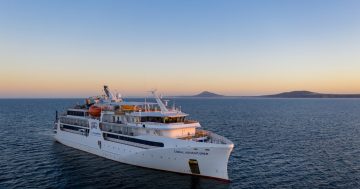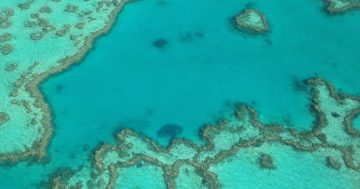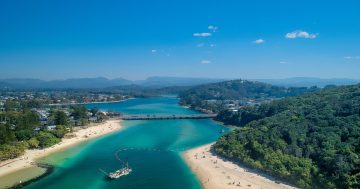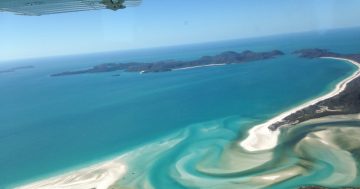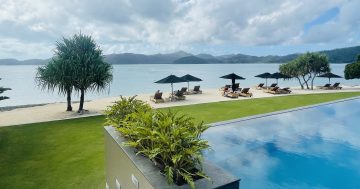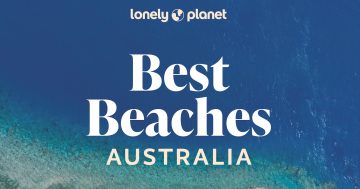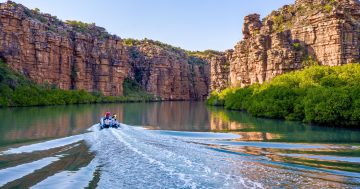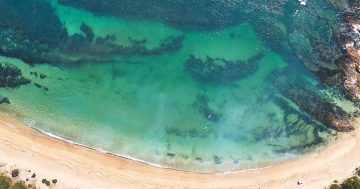By Rama Gaind.
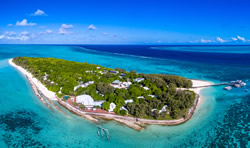
On Heron Island, you are not simply a hotel guest, you are a guest of nature – sleeping, playing and exploring a protected sanctuary overlooking the Great Barrier Reef.
The wonder of nature’s beauty on Heron Island has to be experienced to be believed. This small coral cay, which is part of the Great Barrier Reef, is a nature lover’s paradise.
World famous for its spectacular coral reef and a sanctuary for an extraordinary variety of marine life, when you visit Heron Island you are a guest of nature. For it is here that you’ll be exploring, playing and sleeping in a protected sanctuary overlooking the Great Barrier Reef.
Heron Island is located near the Tropic of Capricorn in the southern Great Barrier Reef, 80 kilometres north-east of Gladstone, Queensland, and 460 kilometres north-north-west of the state capital Brisbane.
This natural coral cay provides a genuine eco-experience, a unique opportunity to witness the magic of the world’s largest coral reef. Renowned worldwide as a haven for sea turtles, the island has new residents who have joined in the mix, with the four-month period until September being manta ray season.
They’re out in droves, jumping and performing impressive manta trains very close to the shore for visitors to enjoy. The island has also released discounted packages until September.
Manta rays are the largest ray in the world, having a wing span of up to five metres, and the only ray that will seek out human interaction. This gives divers and snorkellers on Heron Island a unique encounter with the gentle giants of the sea.
Water clarity during this season is at its peak around the island reef, ensuring clear visibility of this sociable character of the ocean.
Reef cruising
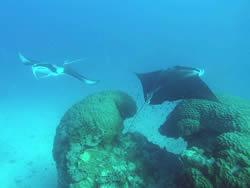
It’s manta ray season on Heron Island and they’re out in droves, jumping and performing spectacular manta trains very close to the shore for visitors to enjoy. The island has also released discounted packages until September.
Manta rays can be seen cruising the outer reef, hovering over Heron Island’s famed bommies known as cleaning stations for grooming, or visitors will see them on the surface feeding on the plankton. Dive and snorkel boats also travel to the outer reef to the bommie sights from Heron Island, that are a five-minute boat ride from the jetty. Snorkelling tours start from $50 per person and diving from $75 per dive.
General manager Tony Barradale notes, “manta rays are harmless giants” on Heron Island.
“Their inquisitive nature makes them very popular amongst diving and snorkelling enthusiasts around Heron Island,” he said. “They have the largest brain to body size ratio of any living fish and are very aware, interactive and inquisitive of their surroundings especially with people swimming alongside them in the water.”
Heron Island twin share packages during manta ray season start from $424 per room, per night based on a minimum two-night stay.
Inclusions are accommodation, daily buffet breakfast and dinner, snorkelling equipment, guided island tours, ferry transfers, welcome antipasto platter and sparkling wine, a sunset cruise or i-spy semi submersible experience, a couples 60- minute massage, and a daily house beer, wine or soft drink per person.
Children 12 years and under can be added to the twin share package for $35 per child per night when using existing bedding. Included in the children’s pricing is daily breakfast and dinner plus snorkelling equipment.
Guests staying during manta ray season will also receive a 20% discount off Discover Scuba Diving courses on Heron Island, for those wanting to learn to dive.
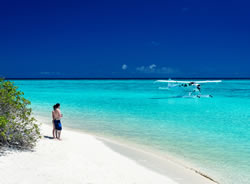
North Beach: experience nature at its best on Heron Island, world famous for its spectacular coral reef and a sanctuary for an extraordinary variety of marine life.
Heron Island caters to all level of marine enthusiasts with 20 dive sites easily accessible by boat within minutes of the jetty. The most popular activity is snorkeling straight off one of the stunning beaches onto the Great Barrier Reef or onshore, join a guided nature walk or star gazing tour, be pampered with a signature therapy at Aqua Soul Spa or head to Baillie’s Bar, the ideal location to enjoy the panoramic reef views.
Heron Island is a protected wildlife habitat, famous around the world for its spectacular coral reef on the island’s water edge, home to a variety of aquatic life, migrating whales, nesting turtles, rays and abundant bird life.
Heron Island is exclusive for overnight guests only (no day-trippers) and accommodation includes 112 rooms only with no mobile phone reception or wi-fi so guests can get back to nature.
The University of Queensland stations the Southern Hemisphere’s largest island-based wildlife research station on Heron Island, utilised by over 60 institutions, domestic and international. Access options to Heron from Gladstone include an educational two-hour ferry ride to reach the Great Barrier Reef location or daily seaplane and helicopter services ex Gladstone.
Spectacular reef
Heron Island is known the world over for its excellent Great Barrier Reef dive sites, coral gardens and pinnacles. So good is the scuba diving, that the world’s most famous undersea explorer Jacques Cousteau has listed Heron bommie as one of his top 10 favourite dive sites. There are plenty of sites to explore, more than half of which are just minutes away from the jetty.
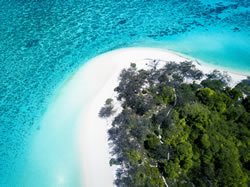
Being right on the Great Barrier Reef means that you can snorkel off the beach. If you haven’t snorkelled before or would like to practice, try Shark Bay (named after the harmless Shovel Nose Ray).
The waters around Heron Island are relatively shallow (average depth 10-25 metres) and are teeming with reef fish, turtles, manta rays, reef sharks and an endless variety of marine invertebrates. Around 60% of the 1,500 species of fish, and around 72% of the coral species found on the Great Barrier Reef call the waters around Heron Island home.
Incredible snorkelling opportunities abound on Heron Island, and it’s the most popular of all guest activities at Heron Island. Whether you’re a mask-and-flipper novice or a more experienced diver, you’ll find plenty to marvel at just below the waters off Heron Island. They have detailed snorkelling tour programs.
At approximately 350,000km and stretching 2,300km, the UNESCO World Heritage listed Great Barrier Reef is one of the best managed marine areas and tourism experiences in the world.
The reef stretches from Tropical North Queensland in the north right down to Bundaberg in the south and off the coast of Gladstone is magical Heron Island, a world-class destination for snorkelling, diving and exploring the waters of the great reef.
This marine life mecca, its size and use, diversity of wildlife and conservation with access to crystal clear waters teeming with maritime life make it one of the world’s greatest natural wonders.
DETAILS BOX
Heron Island
For bookings call 1800 875 343
Go online: www.heronisland.com


